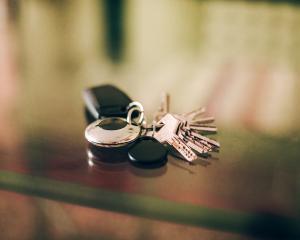Kiwis pay more than buyers elsewhere for some of the most popular consumer goods, an international report shows.
New Zealand was the most expensive place in the world to buy Coca-Cola and adidas sports shoes, according to the Deutsche Bank report Mapping the World's Prices.
We also pay among the top prices for products from high-profile brands, including Apple iPhones, MacBooks and Levi's jeans.
But a night in a hotel or a weekend away in Auckland or Wellington was good value compared to most cities overseas surveyed, including Sydney and Melbourne.
New Zealand's biggest city and its capital were among the cheapest cities in the world for a night in a five-star room, while Sydney was the second-most expensive, after Moscow.
The report, which was based on prices posted online or secondary sources which collate price data, showed the price for a 2-litre bottle of Coke in Auckland, $3.85 (US$3.33), was the highest in the world, despite the drink being made locally.
Manufacturer Coca-Cola Amatil said it played no role in retail prices. But some factors that may affect pricing were our location, the high New Zealand dollar, the cost of getting goods to market, and the small size of the market.
Buying an adidas Superstar 2 shoe cost $150 (US$128.93) in New Zealand, but just $129 (US$111) in Australia.
Adidas said the cost of its shoes was due to many factors, including currency fluctuations, customs duties, local delivery costs and taxes.
New Zealand country sales manager Quentin Bleakley said the company was working on "harmonising prices on a global level".
New Zealand Retailers Association chief executive Mark Johnston said local retailers operated on very tight margins, but some multinational brands were making "double-digit margins".
He said retailers needed to be aware they now operated in a borderless environment, where customers could shop around online - particularly as New Zealand had a high threshold before GST was applied to goods bought overseas.
"We're not going to be the cheapest, and that's down to size, geography, and that in bigger markets there's more price competition," he said.
But there were other advantages to buying locally, such as the protection of the Consumer Guarantees Act, personal service, and being able to get the goods quickly.
"In New Zealand we've got some fantastic examples of retail that's built around being competitive price-wise but also delivering really good customer service, whether it's instore or online," he said.
The report showed a weekend away in Auckland or Wellington, including two nights in a hotel, car rental, meals, snacks, beer and shopping, was less than half the price of a weekend in Sydney.
Hospitality Association president Adam Cunningham said he wasn't surprised by the result.
"I think we're great value for money ... but sometimes as New Zealanders we don't always see it," he said.
The hotel market here was very competitive, which kept prices down.
"That's outside of key events, when we go the opposite way. But generally speaking, the market is incredibly competitive," he said.
Mr Cunningham said Sydney's hotel prices - more than four times the Auckland rate - reflected greater demand, and how effectively the city was marketed as a destination.
But lower prices also meant hotels had less money to invest, so a five-star property here may not be of the same standard as one in Europe or Australia.
The report's authors said Australia ranked as the most expensive major economy, while India was the cheapest.
The United States was the cheapest developed country.












